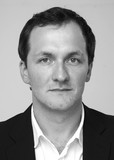The establishment of a healthy lifestyle culture among students requires a combination of organizational and educational factors
Keywords:
students, healthy lifestyle culture, value orientations, terminal and instrumental values, health, physical education, M. Rokeach’s methodology.Abstract
Objective of the study was to determine the organizational and educational factors that contribute to the development of a healthy lifestyle among young people, guided by their values.
Methods and structure of the study. The research involved students from the first to fourth years of study at the Plekhanov Russian University of Economics, with a total of 441 participants, including both male and female students. The age range of the participants was between 17 and 25 years. In the initial phase, the participants were administered a survey using the M. Rokich «Value Orientations» method, which consisted of 18 questions. In the subsequent phase, the survey was conducted using an original questionnaire that focused on the participants' behavior at school and at home, their current knowledge of human physiology, their understanding of healthy lifestyle principles, and their level of physical activity.
Results and conclusions. The process of cultivating a healthy lifestyle culture requires a multifaceted approach. It should encompass interdisciplinary initiatives, imaginative tasks, and the integration of health-related themes into the social sciences and humanities. Additionally, it involves the dissemination of educational content through internal and external platforms, enhancing the curriculum with more engaging physical education classes, and addressing the needs of students by providing incentives for a healthy lifestyle.
Furthermore, it is essential to conduct preventive medical examinations to raise awareness about one's health status.
References
Barabanov N.A., Levchenkova T.V., Germanov G.N. Opredeleniye shiroty poznavatelnogo interesa studentov vuzov fizicheskoy kultury. Uchenyye zapiski universiteta im. P.F. Lesgafta. 2023. No. 1(215). pp. 40-43.
Bobkov V.V., Ryzhkova L.G., Lazarev I.V. et al. Analiz anketirovaniya studentov-pervokursnikov tekhnicheskogo vuza po voprosam otnosheniya k fizicheskoy kulture i sportu. Teoriya i praktika fizicheskoy kultury. 2024. No. 5. pp. 69-71.
Zhupnik O.N. Trendy tsennostnykh oriyentatsiy studencheskoy molodezhi. PhD diss. abstract. Simferopol, 2018. 20 p.
Kakhnovich S.V., Izvekov V.V., Izvekov K.V. Fizicheskaya kultura v tselostnom protsesse formirovaniya lichnosti. Teoriya i praktika fizicheskoy kultury. 2019. No. 2. pp. 52-53.
Lubysheva L.I. Fizicheskaya podgotovlennost sportivnogo studenchestva kak faktor formirovaniya professionalnykh kompetentsiy. Teoriya i praktika fizicheskoy kultury. 2022. No. 3. 103 p.
Lubysheva L.I. Onlayn-obrazovaniye: sostoyaniye i perspektivy. Teoriya i praktika fizicheskoy kultury. 2022. No. 4. 107 p.
Lubysheva L.I. Optimizatsiya samostoyatelnoy raboty studentov v sisteme fizicheskogo vospitaniya na osnove elektronnykh obrazovatelnykh resursov. Teoriya i praktika fizicheskoy kultury. 2022. No. 6. 105 p.

Additional Files
Published
How to Cite
Issue
Section
License
Copyright (c) 2025 Theory and Practice of Physical Culture

This work is licensed under a Creative Commons Attribution 4.0 International License.
